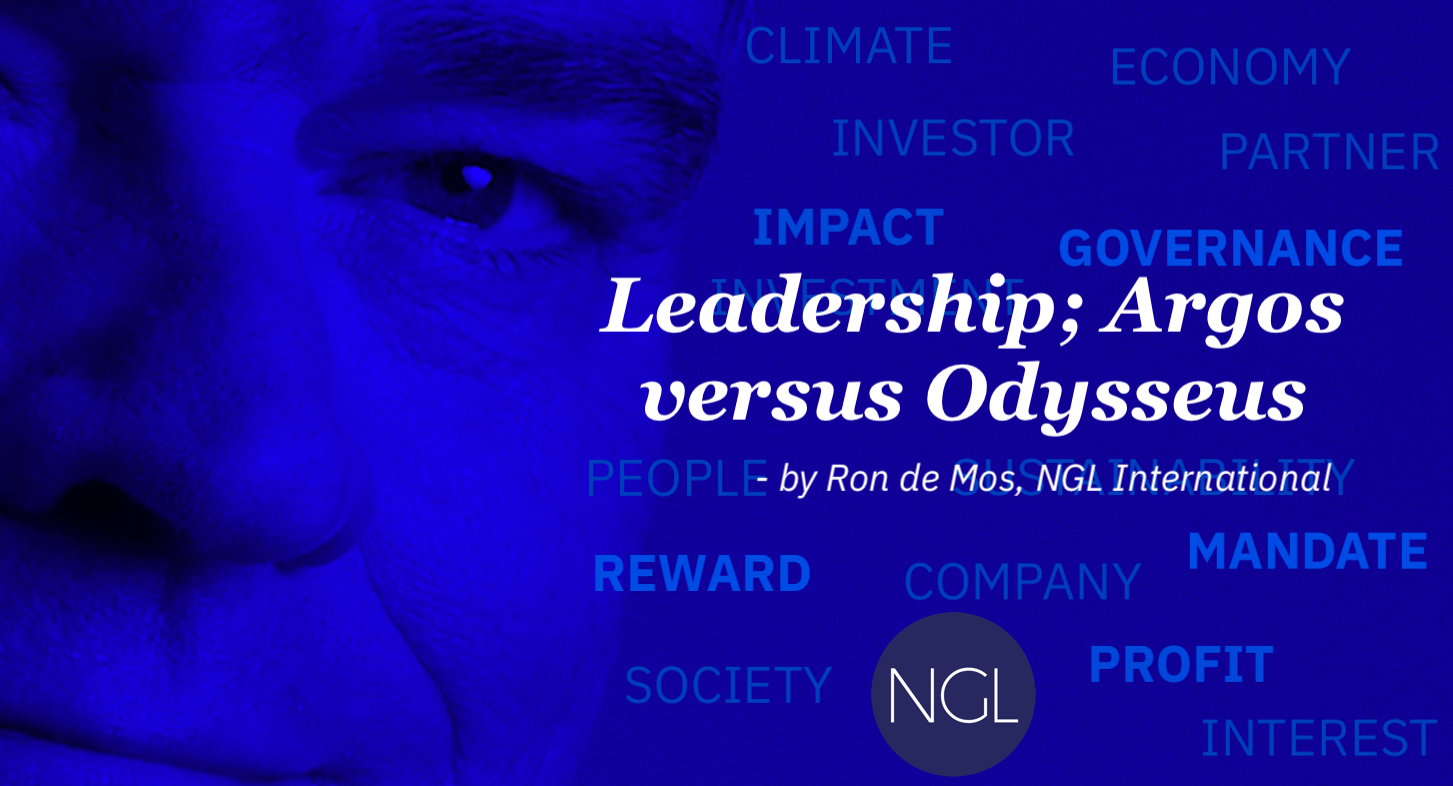In today’s complex and interconnected business world, corporate leaders have to be like the mythological creature Argos—always looking out through a hundred watchful eyes, never losing sight of the opportunities and threats that come their way. They turn their gaze inward, of course, overseeing the many layers, processes, and people that make up their organization. But their focus is also outward, looking at the social and economic context that provides the funding, revenue, and partnerships that keep the company afloat.
At NGL, we see that the dominant player among a leader’s many connections has traditionally been the company’s shareholders. They want to see a return on their investment, and they use deceptively simple financial metrics to determine whether their contributions have been amply rewarded. But, to put it simply, a company’s shareholders are not its only stakeholders.
Purpose versus performance
Internally and externally, organizations are embedded in a multifaceted social fabric whose interests range further than quarterly reports of performance, revenue, and market share. These interests also focus on ESG factors like sustainability, governmental influences, good governance, and education. In our experience, balancing such diverse and often contradictory objectives is a challenge for many leaders. The key to negotiating a workable balance often lies in a leader’s ability to safeguard their own authenticity.
It is precisely this authenticity that is challenged as leaders climb in the company’s ranks. At every step, there is pressure to conform to the organization’s conventional practices and priorities—which are usually aligned with shareholder interests. By the time the leaders arrive in the upper echelons of management, they find themselves surrounded by a power structure in which shareholder value reigns supreme.
But it isn’t quite as simple as that. According to the April 2020 McKinsey Quarterly, only 7% of Fortune 500 CEOs believe their companies’ main focus should be on making profits, without being distracted by social goals. In other words, the societal responsibility towards other stakeholders is certainly felt—but it is hard to implement. Case in point: while 82% of employees surveyed said that their company’s “purpose” was important, only 42% saw it being implemented in their organization’s actions.
A leader’s authenticity
Interestingly, companies that are still led by their founders, including giants like Starbucks, are much more successful in aligning their shareholder and stakeholder management than companies with appointed corporate leaders. This reveals a major counterforce to a leader’s authenticity: their mandate from shareholders. After all, founders by definition create their own mandate, which gives them more room to pursue a variety of objectives. Appointed executives, by contrast, are given a clear top priority by the shareholders: protect our investment.
Such an “external” mandate is an assignment, but also a burden. Its subtext is: conform to our way of thinking, or else. This challenges the leader’s authenticity, and it is a roadblock to an enlightened leadership agenda that seeks to structurally contribute to a better world. In other words: if the shareholders’ objectives are not aligned with the broader stakeholder priorities—and they almost never are—the leader is caught in the middle.
So what should leaders do if they want their company to do more than keep the going concern going, and make a more substantial societal contribution? Simply put, they have to claim the room to do. Ironically, the first prerequisite towards this claim is to first meet the (mostly financial) requirements set by the shareholders. Only then can they begin to negotiate a counter-mandate to address the broader social concerns that the company faces.
In this way, an inspired leader can straddle the worlds of the shareholder and the stakeholder. At NGL, we are inspired to see how they use their authentic leadership qualities to fulfill their primary business mandate, and then create room for wider social connections and involvement. In this sense, today’s leaders are perhaps more like Odysseus. They use their intelligence, bravery and perseverance to accomplish seemingly impossible tasks, for the betterment of their organization as well as the world at large.
By Ron de Mos, Executive Coach NGL International
4 November 2020

